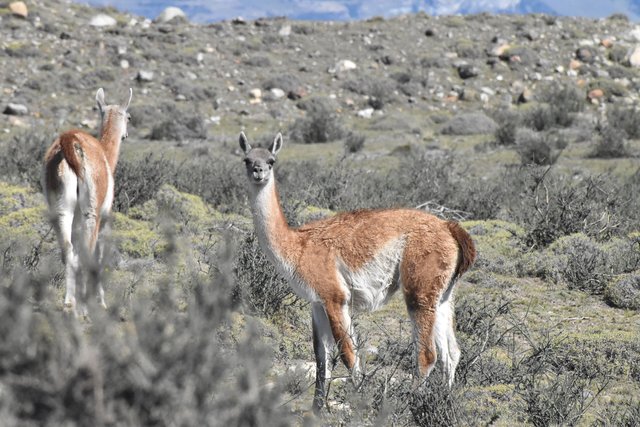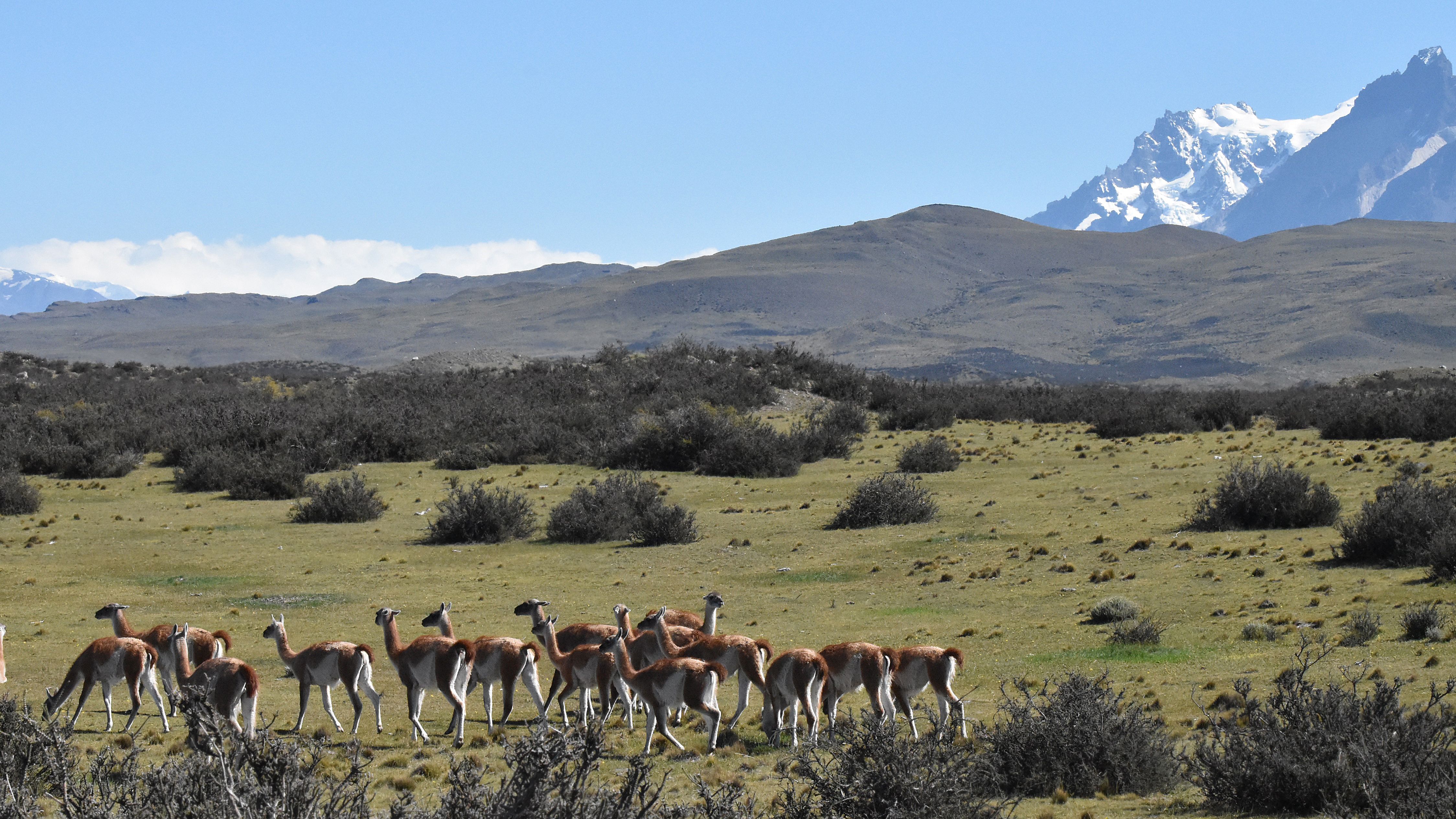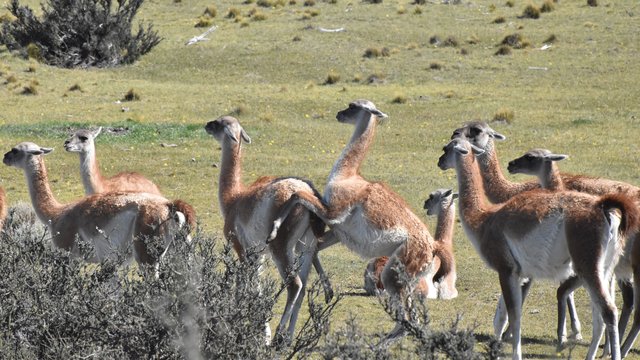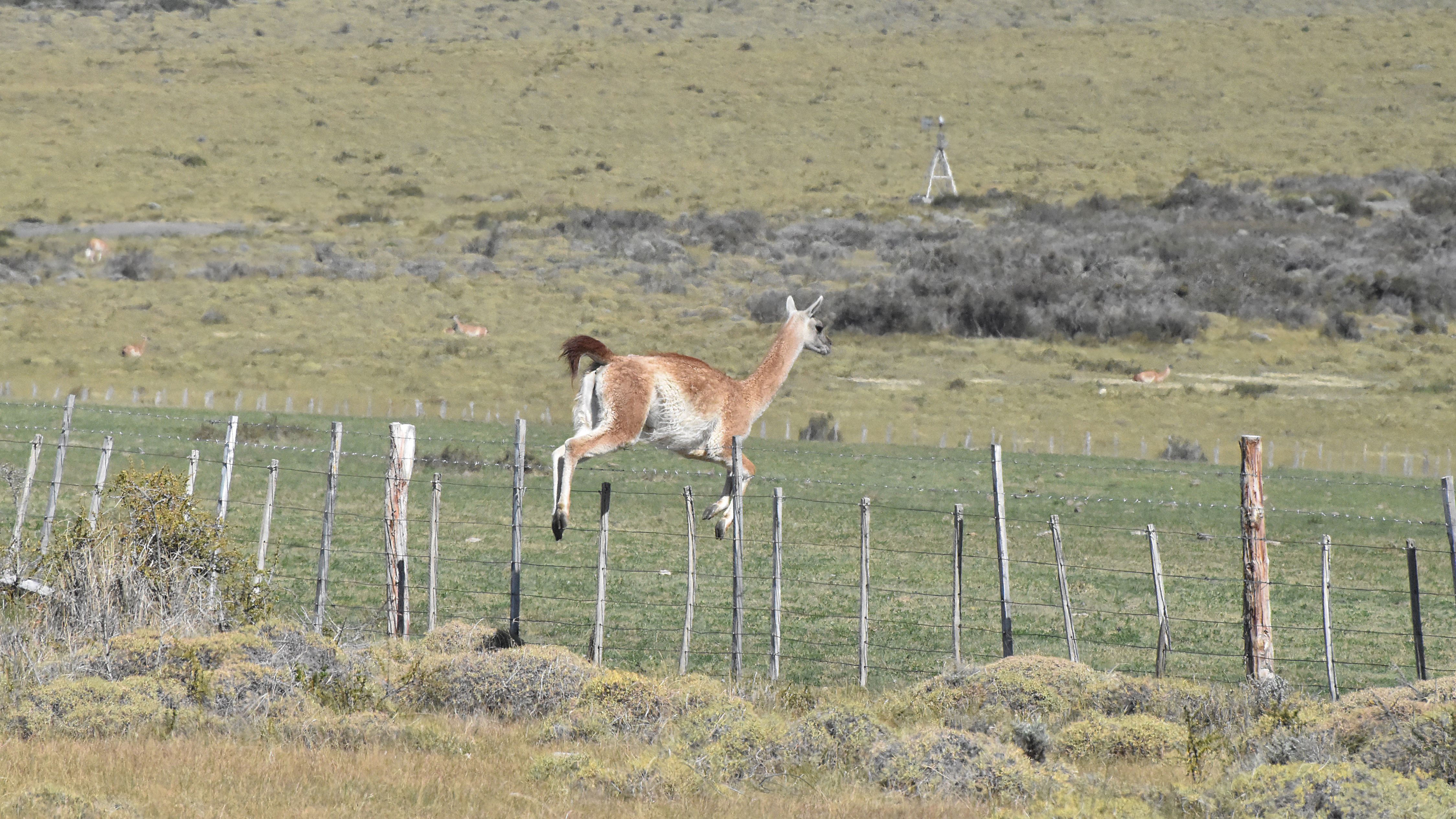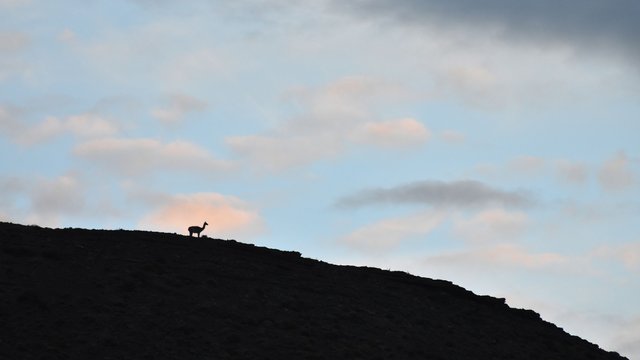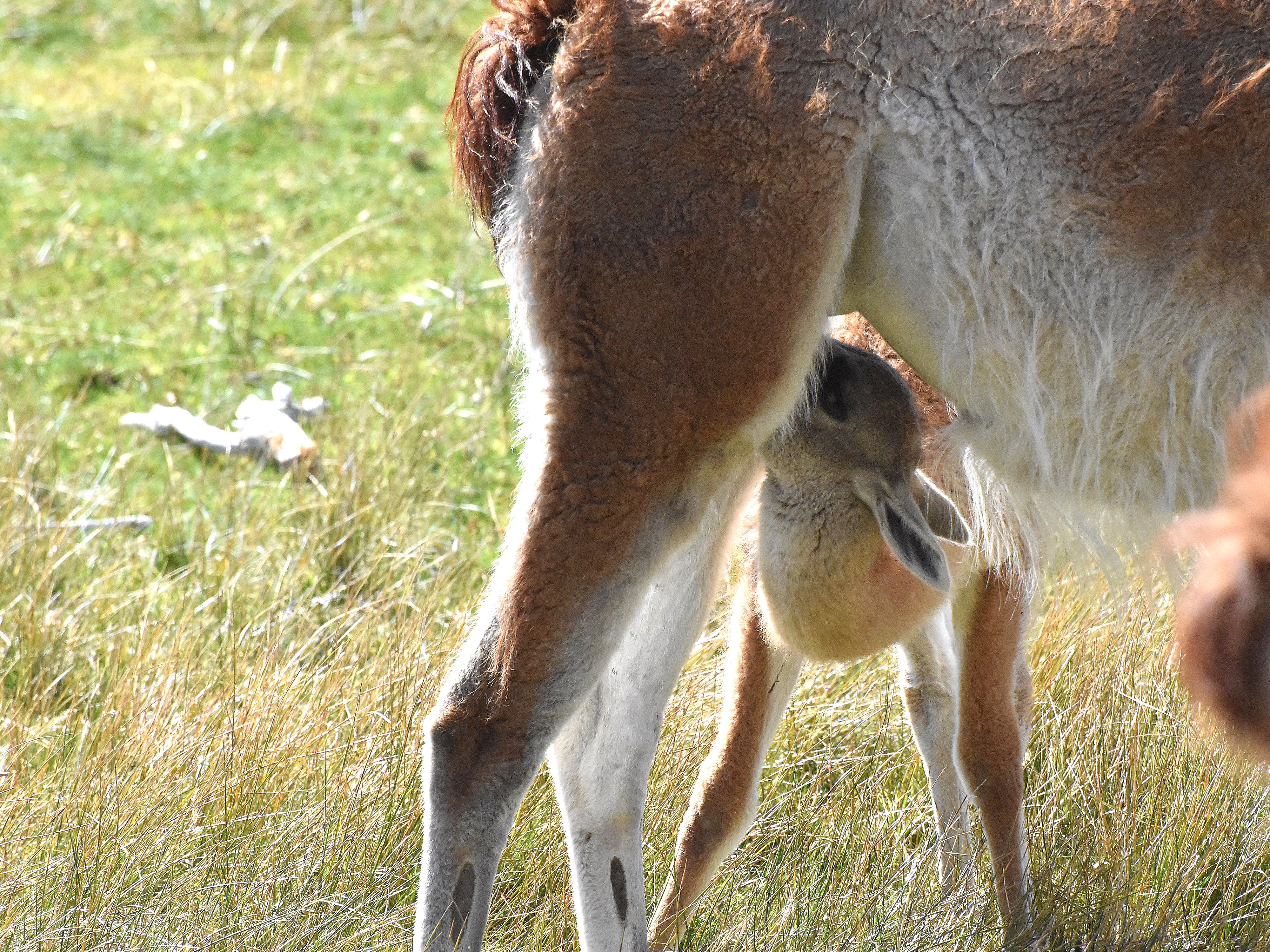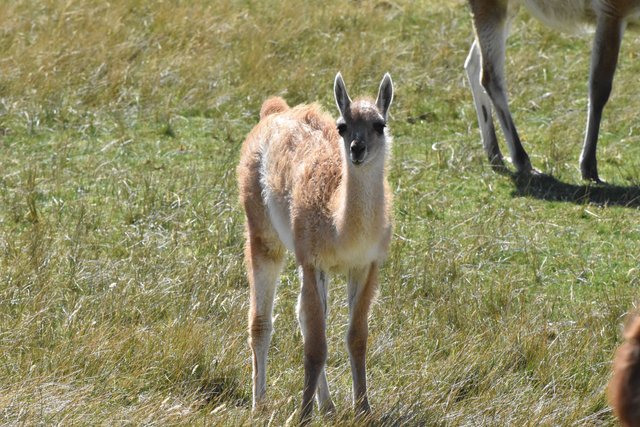Pokeball #3: Guanaco
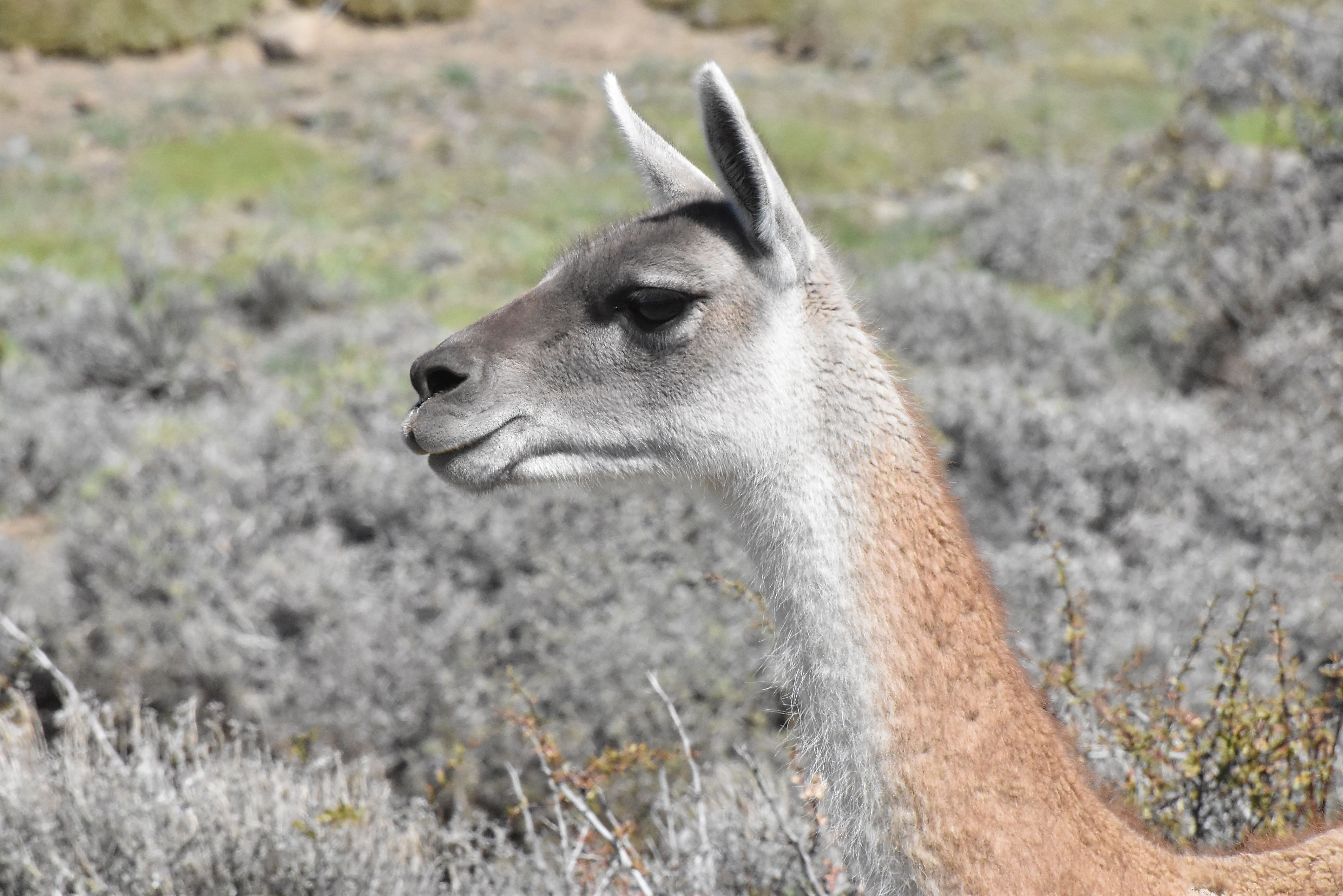
Guanacos inhabit both pampas (grass) and mountainous regions in central/southern South America, where they are among the largest wild mammal species.
Guanacos have thick skin on their necks. Culturally, South American humans have used these thick skins to make shoes (by pounding them into soles).
Guanacos live in herds composed of females, their young, and one dominant male. Bachelor males form separate herds, which are usually larger.
Mating season occurs between November and February, during which males often fight violently to establish dominance and breeding rights.
The guanaco can move very quickly, reaching speeds of up to 60 km/h (37 mph), even over steep/rocky terrain. They have adjusted to human-imposed barriers and will frequently leap over fences. If a guanaco fails to hurdle a fence and gets snagged, it becomes an easy meal for condors, cougars, foxes, caracara and vultures.
The guanaco's closest relatives are the domesticated llama, the wild vicuña and the domesticated alpaca. All these creatures can survive at high altitudes due to their high red blood cell concentration.
Young guanacos are called chulengos and are able to walk immediately after birth. Male chulengos are chased off from the herd by the dominant male at around one year of age.
POKEDEX ENTRY
Name | Guanaco
Nickname | none
Height | 1.0 - 1.2 m (3.3 - 4 ft) at the shoulder
Weight | 100 - 160 kg (220 - 350 lbs)
Diet | Herbivore
Predators | Humans, cougars (aka pumas), foxes
GPS of Catch | Parque Nacional Torres Del Paine (Chile)
Number of Pokemon (to date) | 3
